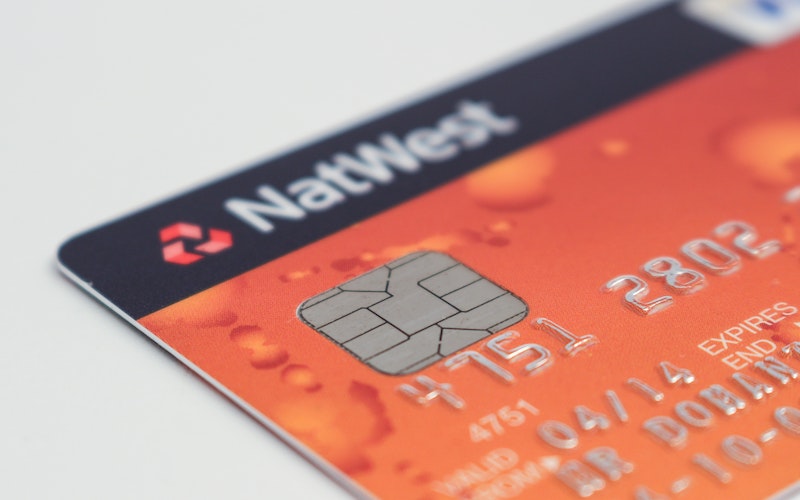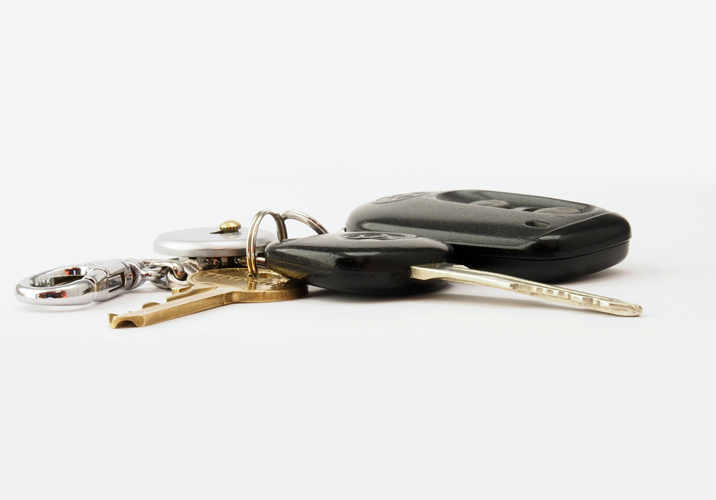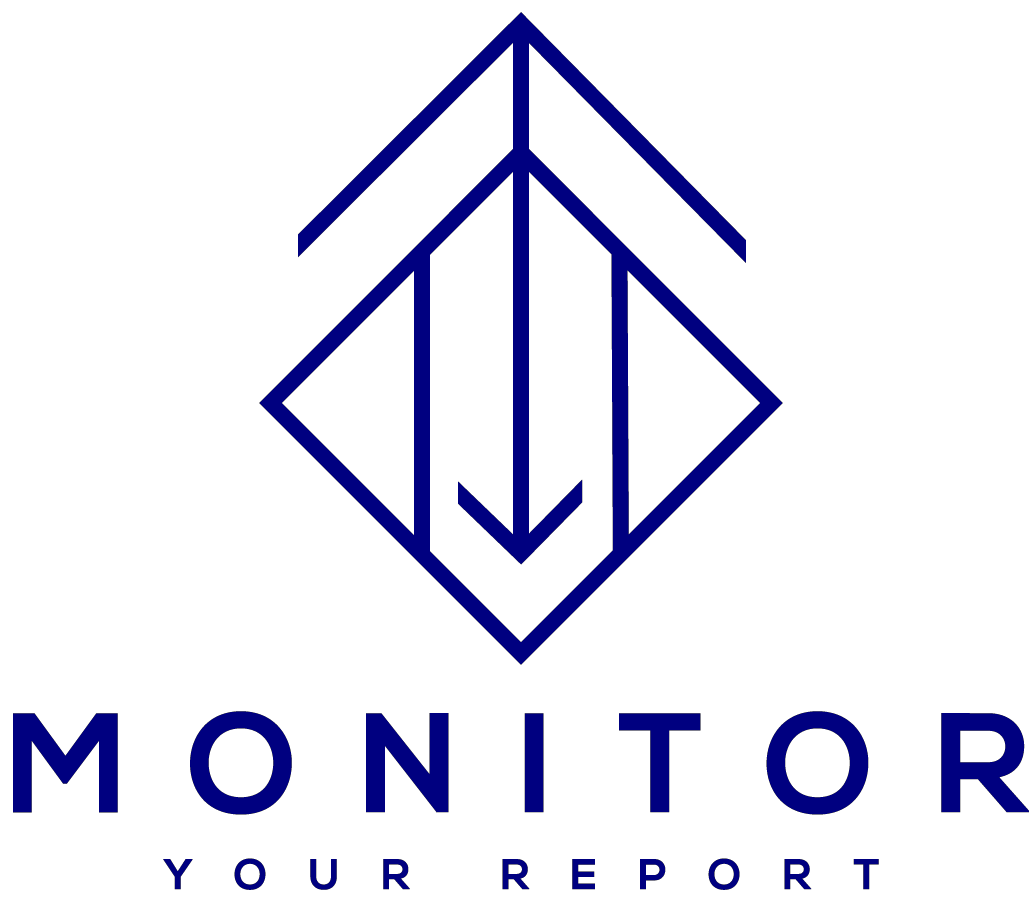700Credit Data Breach Exposes 5.8 Million Americans Identity Theft Risk

700Credit Data Breach Exposes 5.8 Million Americans | Identity Theft Risk. A major data breach involving a credit reporting and identity-verification company has compromised the sensitive personal information of millions of Americans—once again underscoring how vulnerable consumer data has become. 700Credit, a firm that provides credit checks, identity verification, and fraud-detection services for approximately 18,000 auto dealerships across North America, disclosed that cybercriminals accessed data associated with roughly 5.8 million individuals. According to the breach notice, the exposed information includes: Full names Home addresses Dates of birth Social Security numbers While the company stated there is “no indication of identity theft, fraud, or other misuse of information at this time,” history shows that identity theft is often delayed, surfacing months—or even years—after a breach occurs. Why the 700Credit Breach Is Especially Serious Not all data breaches are equal. This incident involved high-value identity data, the exact information criminals need to: Open fraudulent credit accounts Commit auto-loan or financing fraud File false tax returns Sell identities on dark-web marketplaces Once this type of data is exposed, it cannot be “reset” like a password. Social Security numbers and dates of birth are permanent identifiers. “No Evidence of Misuse” Doesn’t Mean No Risk It’s common for companies to state that there is no immediate evidence of fraud following a breach. Unfortunately, that reassurance often provides false comfort. In many documented cases: Stolen data is quietly stored, not immediately used Criminals wait until monitoring lapses Victims discover fraud long after the breach fades from headlines This delay is precisely why proactive protection matters. What Consumers Should Do Right Now If you have ever applied for financing, credit, or identity verification through an auto dealership, your data may be part of this breach. Experts recommend taking the following steps immediately: Monitor your credit reports for new or unfamiliar activity Place fraud alerts or credit freezes with the major credit bureaus Watch for phishing attempts referencing auto loans or dealerships Enroll in identity-monitoring services with real recovery assistance Early detection can be the difference between a minor inconvenience and a financial nightmare. A Pattern That Keeps Repeating This breach is not an isolated incident. Credit reporting agencies, verification platforms, healthcare systems, and financial institutions are increasingly targeted because they store massive volumes of consumer data. The reality is simple:Cybercrime is no longer a possibility—it’s a certainty. The only real question is whether consumers are prepared before their identity is misused. Protect Yourself Before the Damage Is Done Identity theft is more than financial loss—it’s time, stress, and emotional exhaustion. ✔ Ongoing credit monitoring✔ Identity-theft alerts✔ U.S.-based recovery specialists✔ Faster response when fraud occurs Waiting until fraud appears is waiting too long Register with the credit bureau’s identity protection program by using this link: https://thecreditbureau.com/consumer-report/ Or simply call us at 800-518-1077 option 4 Register
Bad Credit? Need a Secure Credit Card?

Bad Credit? Need a Secure Credit Card? Here’s How to Rebuild the Smart Way If you’re struggling with bad credit, you’re not alone—and you’re not stuck. Credit scores go up and down over a lifetime, and a setback doesn’t define you forever. The good news is that there are real tools that can help you rebuild, and one of the most effective (and accessible) is a secure credit card. A secure credit card can be a financial lifeline. Whether your credit took a hit from missed payments, high balances, job loss, medical bills, divorce, or simply not knowing how credit works when you were younger, a secure card offers a second chance to get back on track—without putting you at further risk. Let’s break down what secure credit cards are, how they help rebuild your credit, and what to look for when choosing one. What Is a Secure Credit Card? A secure credit card works just like a traditional credit card—but with one key difference: you provide a refundable security deposit, and that deposit typically becomes your credit limit. For example, if you deposit $200, your credit limit is usually $200. Some issuers may allow you to increase your limit later by adding more to your deposit. Because the lender is protected by this deposit, they’re more comfortable approving people with poor, thin, or no credit history. This is what makes secure cards so powerful for rebuilding credit: Your payments are reported to the major credit bureaus Your credit usage (how much of your limit you use) is tracked Over time, responsible use = better credit history Even though the card is “secure,” it behaves like a regular credit card in the eyes of the credit bureaus—so every on-time payment becomes a positive mark on your file. Why a Secure Credit Card Makes Sense If You Have Bad Credit ✅ Easier ApprovalMost secure cards are designed specifically for people rebuilding or just starting out. Approval requirements are more flexible than traditional cards, so you’re more likely to qualify—even if you’ve been turned down elsewhere. ✅ Credit-Building PowerYour goal isn’t just to get a card—it’s to rebuild your credit. When you make payments on time and keep your balance low, those good habits are reported to the credit bureaus and can help raise your score over time. ✅ Built-In Spending ControlBecause your credit limit is tied to your deposit, it naturally helps you avoid overspending. This structure makes it easier to stay within your budget and practice healthy credit habits. ✅ Upgrade PotentialMany secure card issuers offer a path to “graduate” to an unsecured card. After several months of responsible use, you may be able to get your deposit back and transition to a regular credit card with a higher limit and better terms. What to Look for in a Secure Credit Card Not all secure cards are created equal. When you’re comparing options, pay attention to: Reports to all three credit bureaus (Equifax, Experian, and TransUnion) Low or no annual fees Reasonable minimum deposit, usually in the $200–$500 range Possibility to upgrade to an unsecured card after good payment history Online access and mobile alerts to help you stay on top of due dates Fraud protection and zero liability for unauthorized charges Bonus points if the card includes free credit monitoring so you can track your progress and stay motivated as your score improves. How to Use Your Secure Card Wisely Getting approved is just the first step—the real impact comes from how you use the card. A few smart habits can make a big difference: Use the card regularly, but only for small purchases you can pay off quickly Pay your bill on time, every time—even one late payment can hurt Keep your balance below 30% of your limit (lower is even better) Check your credit score and reports monthly to watch your progress Think of your secure card as a training tool: you’re rebuilding trust with the credit system, one responsible month at a time. Final Thoughts Bad credit doesn’t have to be permanent—and a secure credit card is one of the best first steps toward financial recovery. It’s not just a piece of plastic; it’s a structured way to rebuild trust, confidence, and control over your financial future. If you’ve been turned down for other credit options, don’t give up. A secure credit card can open the door to new opportunities, better rates, and most importantly—peace of mind. Ready to take the first step? We’ve selected a few secure credit card options you can review. Go to the link below and carefully choose the one that fits your needs: Secure Credit Card Would you like this turned into a printable guide or comparison chart of top secure cards? I can help with that too. see more
Bad Credit? We Have the Auto Loan for You

Bad Credit? Let’s face it—life happens. Whether it’s a missed payment, unexpected medical bills, a sudden job loss, or an emergency expense that forced you to choose survival over credit protection, many people end up with a less-than-perfect credit score at some point in their lives. If that sounds familiar, you’re certainly not alone. Millions of people are in the same situation, and the important thing to remember is this: bad credit does not define your future. And even better news? Your credit history does not have to stand between you and a reliable vehicle. Transportation is essential for work, family, and day-to-day life. That’s why at The Credit Bureau, we specialize in helping individuals with bad credit get approved for auto financing—without judgment, without high-pressure sales tactics, and without unnecessary stress. Why Bad Credit Shouldn’t Stop You Traditional lenders often look at a credit score and make quick decisions without understanding the story behind it. But we know better. A credit score is only one piece of the puzzle—and it certainly doesn’t explain who you are or the steps you’re taking to move forward. Maybe you’re rebuilding after a rough financial patch. Maybe your credit was affected by medical issues, divorce, or job loss. Maybe you’re young and still establishing credit for the first time. No matter your situation, we look at the whole picture, not just a number on a screen. Here’s how we do things differently: ✅ Flexible approval criteriaWe understand that good people may have imperfect credit. Our approvals look at income, stability, and your current situation—not just past mistakes. ✅ Affordable monthly paymentsWe work hard to match you with lenders who can offer payment plans that fit your lifestyle and your budget, so you’re not overwhelmed. ✅ Down payment options that work for your budgetWhether you can put money down or need a low-down-payment option, we help you explore choices that won’t strain your finances. ✅ A wide selection of dependable vehiclesYou deserve a reliable vehicle without overpaying. By working with a network of reputable lenders and dealerships, we help you access quality options you can trust. Auto Loans Designed for Real People Buying a car with bad credit doesn’t have to feel impossible—or intimidating. We work with a network of trusted lenders who specialize in bad credit financing, meaning: More opportunities for approval Fair interest rates based on your current ability to pay, not just your past Loan terms designed to help you succeed—not fail Personalized support based on your financial needs Whether your credit score is low, nonexistent, or recovering from something more serious—like bankruptcy—we’re committed to helping you find a loan that works for you. The goal isn’t just getting you into a vehicle. It’s helping you move forward, rebuild your financial confidence, and create a fresh start. A car isn’t just transportation—it’s opportunity, independence, and security. You Don’t Have to Do This Alone The Credit Bureau has already done the research for you. We’ve identified the right lender—one known for working with real people, real situations, and real financial challenges. We chose a partner that prioritizes: Fast approvals Fair terms Transparency Respect for every borrower Getting started is simple. Click the link below, scroll to MyAutoLoan, and submit your application. The process is quick, secure, and designed to help you get behind the wheel sooner than you think. We have picked the right lender for you. Click the link below and find the MyAutoLoan and click to apply. 👉 MyAutoLoan see more
Got Good Credit? Here is How You Can Score Lower Auto Financing Rates

Good Credit? Whether you’re buying your first vehicle, upgrading to a newer model, or refinancing your current auto loan, your credit score is one of the most powerful financial tools you have. Many people focus on the price of the car or the monthly payment they hope to achieve, but the truth is that your credit score plays a bigger role than almost anything else in determining what your final cost will be. A strong credit history doesn’t just open doors — it can dramatically reduce the amount you pay over time. And the best part? You don’t have to navigate this process alone. We work closely with a reputable auto financing company that specializes in rewarding responsible credit behavior with some of the most competitive rates in the market. Why Good Credit Matters in Auto Financing Good credit score is one of the first things lenders look at when reviewing your auto loan application. It doesn’t just influence whether you get approved — it has a major impact on the interest rate you’re offered. Lenders see a higher credit score as proof that you manage your finances responsibly, make payments on time, and pose a lower risk of default. Because of this, they’re more comfortable offering you a lower interest rate. Lower interest rates may sound like a small detail, but they make a huge difference. A reduction of even one or two percentage points can save you hundreds — and in many cases thousands — of dollars over the life of your loan. Over a typical 36-, 48-, or 60-month loan, the savings can be significant enough to lower your monthly payment or help you afford a better vehicle without stretching your budget. In short, good credit doesn’t just help you get approved; it helps you keep more money in your pocket. We Partner with the Right Lender for You Good credit the auto financing world is filled with all kinds of lenders, and not all of them offer the same benefits. Some focus on high-risk borrowers and charge very high interest rates, while others structure their loans with extra fees or confusing terms. That’s why choosing the right lender is just as important as choosing the right car. We’ve taken the guesswork out of this process by partnering with a trusted auto financing company known for treating creditworthy borrowers fairly. They recognize the value of customers who have built and maintained good credit, and they reward that responsibility with excellent rates and a straightforward approval process. Their goal is to help you get the vehicle you want while maximizing the financial benefits that your good credit has earned you. Their application process is fast, user-friendly, and designed to respect your time. Many customers receive pre-approval within minutes, and best of all, the initial check does not impact your credit score. Once pre-approved, you’ll be able to explore your financing terms and choose an option that fits comfortably within your budget. what You Can Expect: Lower interest rates for borrowers with good to excellent credit. Fast and easy pre-approval that won’t affect your credit score. Flexible terms designed to support your financial goals and monthly comfort. No hidden fees or surprises — just simple, transparent financing. How to Get Started Getting started is easy. Simply click the link below and scroll until you find My Auto Loan. From there, you can begin the fast pre-approval process and explore the financing options available to you. Whether you’re ready to buy today or simply planning ahead, taking this step can give you valuable insight into your purchasing power and help you make the smartest decision for your budget. My Auto Loan see more
How to Remove The Fraud Alert

How to Remove a Fraud Alert A fraud alert is a powerful tool that protects you when your personal information has been compromised. It notifies lenders and creditors that they must take extra steps to confirm your identity before approving new credit. While this is extremely useful when you’re dealing with identity theft, there may come a time when you no longer need the alert—such as after your situation is resolved or when you want to apply for new credit. Removing a frud alert is a straightforward process, but each credit bureau handles the removal a little differently. Below is a complete guide to removing a fraud alert from TransUnion, Experian, and Equifax, including detailed steps and additional tips to ensure your request goes smoothly. Removing a Fraud Alert from TransUnion TransUnion gives you the option to remove a fraud aleart online or by phone. If you already have a TransUnion account, this is often the simplest and fastest way to remove the alert. To remove a fraud alert online: Log in to your TransUnion account.If you don’t have one yet, you can create it using your personal information. Navigate to the “Credit Report” tab.This is where you’ll find tools related to managing your personal credit file. Click “Dispute” or a similar link.TransUnion updates their interface occasionally, but you’ll always find a section that allows you to manage alerts and disputes. Select “Add, Modify, or Remove a Potential Fraud Alert.”This takes you directly to the management area. Click “Continue.” Choose “Remove.” Click “Submit.” Confirm that the fraud alert has been removed.You may receive a confirmation email or message through your TransUnion dashboard. If you prefer to handle this by phone, or if you run into any issues online, you can call TransUnion directly at: TransUnion Fraud Alert Removal: (800) 916-8800 A representative will verify your identity and remove the alert for you. Removing a Fraud Alert from Experian Experian allows you to remove alert online, by upload, or by mail. Their process involves verifying your identity to ensure that no one else is trying to remove the alert without your permission. To remove a fraud alert online: Visit the Experian Fraud Alert Center. Click “Remove a fraud alert.” Complete the identity verification form.You will need personal details such as your full name, Social Security number, and current address. Upload the completed form to Experian’s secure upload page. If you prefer to mail your request, Experian also accepts alert removal by mail. To remove a fraud alert by mail: Print and complete Experian’s fraud alert removal form. Include a copy of a government-issued ID (driver’s license, state ID, or passport). Include a copy of a utility bill, bank statement, or insurance statement showing your current mailing address. Mail everything to: ExperianP.O. Box 9554Allen, TX 75013 Once Experian receives your request, they will review the documents, process the removal, and send you a confirmation. Removing a Fraud Alert from Equifax Equifax also allows alert removal by phone or by mail. They require identity verification to prevent unauthorized removal. To remove a fraud alert by phone: Equifax Fraud Alert Removal: (888) 836-6351 A representative will guide you through identity verification and remove the alert. To remove a fraud alert by mail: Send a written request along with identification verifying who you are. Include: A copy of your government-issued ID A document showing your current address (utility bill, insurance statement, or bank statement) Mail to: Equifax Information Services LLCP.O. Box 105069Atlanta, GA 30348-5069 Equifax will process your request and notify you once the fraud aleart has been removed. Final Tip Always keep copies of all forms, IDs, and correspondence for your records. After removing the alert, monitor your reports for several days to ensure everything updates correctly. see more
Answering Credit Report Questions

At The Credit Bureau, we’re passionate about helping you understand your credit report.Our team is here to answer your questions and guide you through smart strategies to take control of your credit report. We believe credit education is a powerful, and we’re committed to going the extra mile for you. By registering at monitoryourreport.com, you’ll get access to your credit reports and scores from all three major bureaus—TransUnion, Experian, and Equifax. The program also includes: Ongoing phone support A $1 million identity theft insurance policy to protect you in case of fraud Here’s how to get started: Subscribe to credit monitoring:Visit this link to sign up. It’s just $.80 for the first week, then $29.95/month. Create your login and passwordSo you can access your reports anytime. Schedule your support session:Book a one-on-one meeting here: https://meet.brevo.com/thecreditbureau During your session, we’ll review your credit report and answer any questions.. Let us help you take the guesswork out of the credit report.
Rising Cost of Cyber Attacks- Recent News

Cyber attack? Today 1/14/2025, according to Financial Times, Robinhood is set to pay biggest fine of more than $100 Million imposed by SEC. 6 days ago, According to Wall Street Journal, Bayview Asset Management Entered Into a $20 Million Settlement Over Cybersecurity Weaknesses. In 2024 cyber attack, the financial sector experienced a notable increase in the cost of data breaches. According to IBM’s “Cost of a Data Breach Report 2024,” the average expense for financial institutions rose by approximately 3% to $6.08 million, surpassing the global average of $4.88 million. Given these rising costs, it’s imperative for financial institutions to invest in robust cybersecurity measures. One of the biggest expenses is credit monitoring provided to each affected individual, costing approximately $29 per month and often continuing for two years. We recommend registering for monitoring by going to: https://thecreditbureau.com/consumers The Credit Bureau Phone Number is: 800-518-1077
Cyber Crime Statistics 2023

In 2023, cyberattacks in the United States reached alarming levels, reflecting a global surge in cybercrime. Notable incidents included a breach at the U.S. State Department, where hackers gained access to tens of thousands of emails via Microsoft Exchange. Ransomware remained a widespread threat, targeting sectors such as healthcare, critical infrastructure, and government agencies. The overall cost of cybercrime is expected to increase dramatically, with global losses projected to reach $23.84 trillion by 2027, up from $8.44 trillion in 2022. In 2022, the FBI’s Internet Crime Complaint Center (IC3) reported $10.3 billion in losses due to cybercrime in the U.S. alone, reflecting a sharp rise in both the number of incidents and the financial toll. Ransomware, business email compromise, and data breaches continue to be the most common forms of attacks, driven largely by financial motives, though espionage and geopolitical tensions also play a significant role. Source: World Economic Forum Recommendation: Register for Identity Theft Protection www.thecreditbureau.com/consumers The Credit Bureau Phone lines are open to public. 800-518-1077
The Credit Bureau’s Customer Service Strengthens Community

How Credit Bureau Customer Service for Fraud Victims Strengthens Credit Union Relationships In today’s increasingly digital world, fraud has become an unfortunate and unavoidable reality for millions of Americans. Data breaches, identity theft, account takeovers, synthetic identities, and phishing attacks now occur at a scale never seen before. For individuals, fraud disrupts far more than their financial stability—it shakes their confidence, their sense of safety, and their emotional well-being. For credit unions, this creates a unique challenge. Unlike large financial institutions, credit unions are built on a foundation of trust, community engagement, and personalized service. Members choose credit unions because they expect a more human, member-centered approach to financial services. When fraud occurs, members naturally look to their credit union for support, clarity, and reassurance. This is where The Credit Bureau’s specialized customer service for fraud victims becomes an invaluable tool—both for restoring member confidence and for strengthening long-term relationships between credit unions and their communities. The Role of Credit Bureau Customer Service Fraud recovery is not just a technical process; it is an emotional and educational journey. Victims often feel overwhelmed, embarrassed, or fearful about what may happen next. Many don’t know where to begin—who to call, which accounts to freeze, or how to protect themselves from further damage. The Credit Bureau’s customer service team helps bridge this gap. The goal is not only to resolve issues quickly but to provide guidance, emotional support, and expert navigation through the complex world of fraud recovery. This level of support transforms what could be a traumatic experience into a manageable and empowering one. When handled properly, members walk away not only with restored security but with deeper trust in their financial institution. Credit Bureau Customer Service Building Trust Through Support Customer Service ? Fraud victims consistently report that how they were treated during the recovery process matters just as much as the fraud itself. Credit unions partnering with The Credit Bureau gain a powerful extension of their member-care philosophy. 1. Empathetic Communication Fraud victims are often in a state of panic or distress. They want to speak with someone who listens, understands, and genuinely cares. The Credit Bureau Customer Service specializes in compassionate, patient, and empathetic communication, ensuring victims never feel rushed or dismissed. This human-centered approach reassures members that they are not alone and that expert help is available. Empathy not only calms fears but also reinforces the credit union’s reputation for caring about each member as an individual—not just an account number. 2. Clear, Step-by-Step Guidance The aftermath of identity theft can feel like a maze with unfamiliar terminology, multiple agencies, and critical deadlines. Victims may need to place fraud alerts, freeze credit files, file police or FTC reports, dispute unauthorized charges, and monitor accounts for weeks or months. The Credit Bureau Customer Service provides: Simple, step-by-step instructions Assistance with completing fraud documentation Guidance on contacting credit bureaus and government agencies Support in understanding credit report updates and alerts This reduces stress and prevents costly mistakes. When members feel guided and supported, their confidence in the credit union grows stronger. 3. Proactive Protection Measures Fraud recovery is only one piece of the puzzle. Long-term protection is equally important. The Credit Bureau offers proactive tools such as: Fraud alerts Credit freezes Identity monitoring Dark-web scanning Ongoing notifications These tools demonstrate a clear commitment to safeguarding members’ financial security. For credit unions, offering these protections increases their competitive edge and reinforces their role as trusted financial partners. The Impact on Credit Unions Fraud—when handled poorly—can damage member relationships and erode trust. But when handled with care, it becomes an opportunity to strengthen loyalty and deepen engagement. Partnering with The Credit Bureau allows credit unions to transform a crisis into a moment that reinforces their values. 1. Strengthening Community Ties Credit Bureau Customer Service unions are community institutions. Members are often neighbors, coworkers, or long-term family customers. When a credit union can confidently say, “We have a partner who will walk you through every step of fraud recovery,” it creates tremendous goodwill. Supporting members during one of the most stressful financial experiences of their lives strengthens community ties and reinforces the cooperative mission credit unions stand for. 2. Enhancing Reputation and Member Retention A credit union known for its strong fraud-prevention and fraud-resolution processes automatically stands out. Word of mouth travels quickly, especially when it involves safety and security. Members who experience excellent support during a fraud incident are significantly more likely to: Stay with their credit union Recommend it to others Use additional services A strong fraud-support program doesn’t just solve immediate problems—it builds long-term loyalty and contributes to growth. 3. Educational Opportunities for Members Fraud prevention works best when members understand risks and know how to protect themselves. By collaborating with The Credit Bureau, credit unions can offer valuable educational resources, such as: Fraud-prevention workshops Online educational materials Newsletters and alerts Community events on identity protection These initiatives position the credit union as a trusted financial educator—not just a lender or service provider. Members appreciate institutions that empower them with knowledge, especially in today’s rapidly evolving cyber landscape. Why This Partnership Matters Fraud is not slowing down. Cybercriminals grow more sophisticated every year, and new threats appear constantly. Credit unions need the right tools and the right partners to meet member expectations and protect their financial well-being. The Credit Bureau Customer Service brings decades of expertise, deep industry knowledge, and a compassionate approach to fraud resolution—giving credit unions confidence that their members are in good hands. By integrating The Credit Bureau’s customer service into their fraud-response strategy, credit unions can: Minimize member stress Reduce internal workload Improve fraud-response outcomes Enhance member loyalty Increase overall satisfaction This partnership goes far beyond traditional credit-reporting support—it becomes a strategic advantage. Conclusion Fraud is a growing challenge that impacts individuals both financially and emotionally. But with the right support systems in place, the damage can be significantly reduced. The Credit Bureau’s Customer Service dedicated customer service for fraud victims plays a critical role
US Identity Theft Losses Topped $10 Billion in 2023

The number of fraud complaints reported to the FTC and affiliate agencies increased 1.6% in 2023 to 2,603,556, up from 2,563,678 in 2022. Total financial losses associated with fraud increased nearly 16% in 2023 to $10.3 billion, up from $8.9 billion in 2022. Meanwhile, median losses per reported fraud case dropped about 23% to $500 in 2023, down from $650 in 2022. The number of identity theft complaints filed during that same one-year period decreased by 6.3%, to 1,036,961 from 1,107,053. If you don’t have identity protection, its time. Purchase protection by going to this link: www.thecreditbureau.com/consumer-credit-report Our phone number is open to public. The Credit Bureau Phone Number is: 800-518-1077

